March 24, 2020
Stuck at home on quarantine?
Let's talk drinking, shall we? After all, with 2-3 extra hours every evening, I've personally been mighty tempted every time I walk past our alcohol cabinet to start mixing up cocktails; but by using the strategies you'll discover in today's article, I've been able to avoid any cabin-fever hangovers.
Yes, I drink alcohol. Consistently. Just about every day, 365 days a year—typically via a glass of organic, biodynamic red wine or a healthy cocktail made with my favorite bitters, herbs, spices, and a bit of Mezcal (super keto-friendly, clean alcohol choice), gin, or vodka.
In previous posts (most notably “How To Microdose With Alcohol For A Better Brain & A Longer Life (& 3 Quick Hacks To Make Alcohol Healthier).” and “Get Rid Of Holiday Hangovers Once & For All: How To Party Hard Without Doing Lasting Damage To Your Body.“) I explain the nuances of exactly why I do not avoid alcohol, and actually consider small, responsible and frequent doses of alcohol to be a useful life-extending and health-enhancing strategy.
But I'm also quite interested in the emerging trend of cocktails—as reported on recently in Forbes magazine—that don't actually contain alcohol, but still produce a mild alcohol-like buzz that enhances social lubrication, produces a feel-good sensation, and reduces stress at the end of a long day.
So I'm now keeping my eyes on the emergence of everything from ketone esters and ketones (such as 1-3 butanediol) as alcohol alternatives to mix with tonic water and lime, to companies such as Kin Euphorics for done-for-you, adaptogen/nootropic/botanical-filled non-alcoholic cocktail blends to the emerging trend of non-alcohol cocktail bars.
As a matter of fact, at one of my recent Boundless book launch parties at The Assemblage (a coworking, coliving, and community space with fantastic weekly wellness and biohacking gatherings) in New York City, the entire event was catered with feel-good, non-alcoholic drinks (while my book launch party in LA featured low-alcohol, kombucha beverages—another hot trend).
Here's what the cocktail menu at The Assemblage looked like:
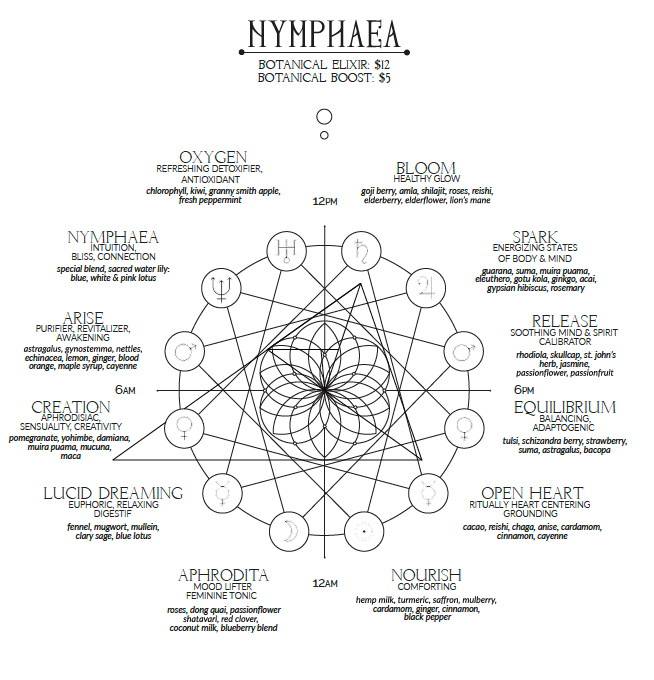
The following month, during my Boundless book launch and biohacking tour of India, I took part in a dinner that featured a “Longevity Menu” catered by the amazing Lore pop-up restaurant of India using ingredients and produce grown locally, with mind-blowing dishes such as:
- Lacto-fermented mangoes encased in a tart and filled with an espuma of marigold cream, dressed with fresh marigold petals…
- Foraged fresh edible greens dressed over flax, chia and hemp crackers…
- Rose Kombucha with a puff stuffed with Mandya rose buttercream…
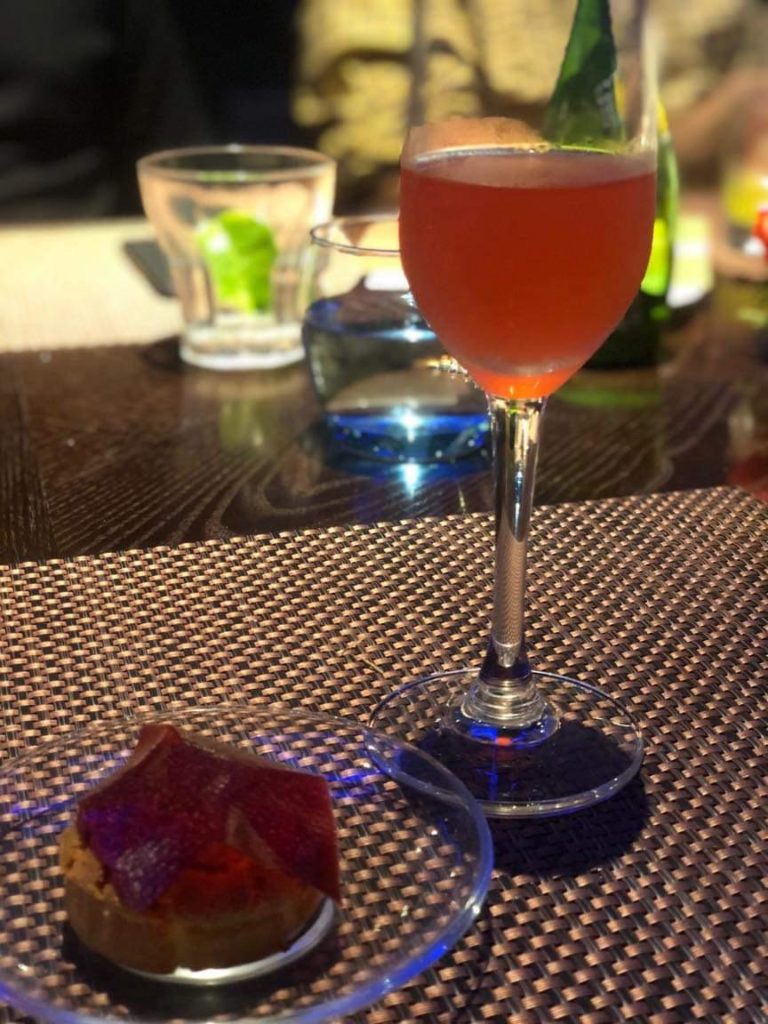
- Pickled beets and sorbet along with purple sauerkraut with juniper berries, garnished with red vein cresses…
- Bannur lamb bone broth with wilted drumstick leaves…
- Gooseberry poached snapper served with sprouted millets and fresh turmeric…
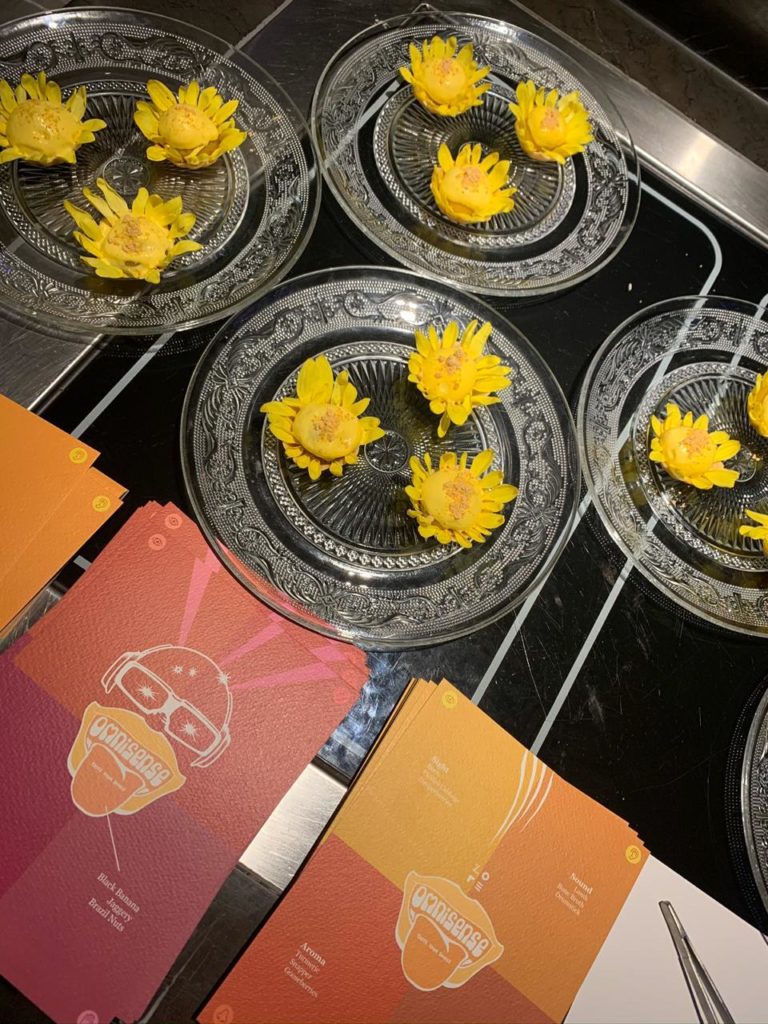
- Egg foam over lobster and sautéed white asparagus along with Morel mushrooms, served with daikon butter and bread…
- Black banana churned with jaggery and the added crunch of Brazil nuts topped with a crispy banana skin…
- And much more…
You get the idea. Pure decadence!
What was most interesting, and relevant to today's article, were the non-alcoholic drinks (or minimal-alcohol), prepared by Sakura Fresh out of India, who treated us with a batch of zero alcohol bitters that really popped with flavors like I've never tried before, including:
- A Cherry Blossom martini made with Cherry Blossom, Martini Bianco, and vodka…
- The Aquamarine made with Gin, Blue Pea tonic Water, and Passionfruit…
- A Julep Jameson made with Irish Whiskey, Passion Fruit and Honey, Lime juice and Mint leaves…
- A Falernum Spritz Bubbly, made with Falernum, Ginger fresh and a Kaffir Lime tart…
Hopefully, the wheels in your head are spinning when it comes to crafting amazing non-alcoholic drinks or minimum-alcohol cocktails. Since returning from India, I've been mixing up everything from ginger powder, cinnamon, cayenne, cardamom and gin over ice to bitters shaken with liquid ketones, sea salt, and lemon juice!
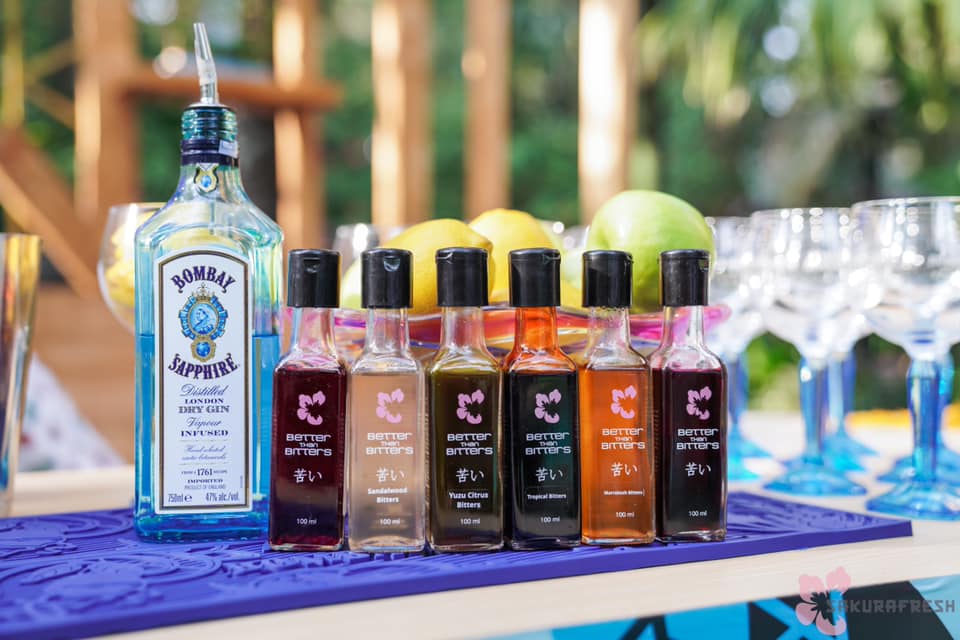
P.S. If you're curious to learn more about bitters and why they are so amazing for you, check out this podcast episode: “Plant-Based Medicine 101: How To Use Wild Plants For Cognitive Enhancement, Physical Performance, Immunity And More!” and grab yourself some of my favorite Urban Moonshine bitters here.
Nootropic, Adaptogen, & Botanical Non-Alcoholic Drinks
These drinks at The Assemblage event and The Lore event were such a hit, that I thought I'd share with you some of the most popular healthy, non-alcohol or low-alcohol drink recipes used at The Assemblage event so that you can replicate these tasty brews in the comfort of your own home.
If you want to reduce your exposure to alcohol or want to experiment with some alcohol-free cocktail alternatives, the following drinks will be right up your alley. Bon appetit!
Without further ado, here is a list of my top six favorite non-alcoholic drinks from The Assemblage, along with a list of ingredients so you can craft your own non-alcoholic drinks at home. Feel free to experiment with our own ratios of ingredients: I've found that a pinch of this and a pinch of that and tasting as I go works out quite well. There's no “perfect” ratio!
1. Joy Elixir
- Rhodiola – Perennial flowering plant that grows naturally in wild Arctic regions of Europe, Asia, and North America. It is used for increasing energy, endurance, strength, and mental capacity and as an adaptogen to help the body deal with physical and environmental stress.
- St. John's Wort – Flowering plant used in traditional medicine to elevate mood and symptoms that sometimes go along with mood such as nervousness, low energy, and trouble sleeping.
- Albizia flower – Species of tree native to southwestern and eastern Asia used in Chinese medicine for relieving anxiety, stress, and depression.
- Rooibos – Grown in South Africa and member of the plant family Fabaceae, rooibos is rich in anti-inflammatory antioxidants and vitamin C.
- Mangosteen-Hibiscus – A powerful combo, mangosteen and hibiscus both contain an impressive amount of minerals and phytonutrients to nourish the skin and promote digestive health.
- MCT Oil – An source of “good” fat that requires minimal effort from your liver to convert into ketones. It's one of the quickest sources of clean energy for your body and brain.
- Schizandra berry – From the fruit-bearing vine Schisandra Chinensis, it's also known as five-flavor-fruit (salty, sweet, sour, pungent, and bitter). It comes from northern China and far-east Russia and has been used to support the liver; concentration, memory, and alertness; reduce stress; and support sexual function.
2. Spirit Elixir
- Blue lotus – Also known as blue Egyptian lotus, blue water lily, blue Egyptian water lily, or sacred blue lily, this flower in the genus Nymphaea was used by ancient Egyptian civilizations and is said to aid in spiritual connection, elevate consciousness, increase circulation and sexual desire, and relieve stress.
- Skullcap – Flowering perennial native to North America that has been used by Native Americans to treat menstrual disorders, nervousness, and digestive and kidney problems.
- Lemon balm – Lemon-scented herb from the mint family that is grown worldwide, but native to Europe, North Africa, and West Asia and used to improve mood and cognitive function.
- Ginger – Flowering plant from China that is closely related to turmeric, cardamom, and galangal. The rhizome portion of ginger has anti-inflammatory effects and has been traditionally used to treat nausea and reduce muscle pain and soreness.
- Mint tea – Spearmint is a perennial plant from Europe and Asia that is high in antioxidants and may help balance hormones, lower blood sugar, improve digestion, reduce stress, and improve memory.
- Camu Camu – Sour berry from the Amazon rainforest, it is high in vitamin C, contains powerful antioxidants, and has been used to fight inflammation, promote a healthy weight, and improve blood sugar levels.
- Cinnamon – Small evergreen tree belonging to the family Lauraceae and native to Sri Lanka. Loaded with antioxidants, cinnamon has anti-inflammatory and anti-cancer properties, may reduce the risk of heart disease, lower blood sugar levels, and help fight bacterial and fungal infections.
- Kombucha – Fermented tea that is an excellent source of probiotics and antioxidants. Be sure to check the sugar content, as most kombucha found in stores contains excessive amounts. Or, you can brew your own kombucha at home.
3. Bloom Elixir
- Amla – An edible fruit also known as Indian Gooseberry is from the deciduous tree of the family Phyllanthaceae. It is one of the three fruits in the Ayurvedic preparation Triphala and an excellent source of Vitamin C, has been used to prevent viral and bacterial ailments, and support healthy blood sugar levels and liver function.
- Shilajit – Blackish-brown powder from mountain rocks found in the Himalayas, Russia, Mongolia, and Chile that is formed by the gradual decomposition of plants by microorganisms. Shilajit has been used in traditional Indian medicine as an antiaging compound.
- Goji – Fruit from either Lycium barbarum or Lycium chinense that has been used to protects the eyes, support the immune system support, promote healthy skin, stabilize blood sugar, and improve mood, anxiety, and sleep.
- Reishi – Mushroom that has been used to boost the immune system, reduce stress, improve sleep, fight fatigue, and promote healthy cholesterol and blood sugar levels.
- Elderflower – Used in traditional medicine all over the world to treat colds, the flu, sinus infections, relieve occasional constipation, and control blood sugar. Elderflower also has antibacterial, antiviral, and antiseptic properties.
4. Immunity Elixir
- Raw cacao – From the seeds of the cacao tree, it has been shown to have anti-inflammatory properties and may reduce the risk of diabetes. Cacao is rich in magnesium, calcium, iron, zinc, copper, potassium, and manganese.
- Mushroom blend – This high-antioxidant 10-mushroom blend from Four Sigmatic offers support for your immune system, overall wellbeing, cognition stress, endurance, and more.
- Astralagus – Flowering plant and one of the 50 fundamental herbs used in traditional Chinese medicine, it has been shown to decrease glucose absorption and circulating blood glucose and may reduce fat accumulation.
- Coconut milk – Rich in fiber, vitamins C, E, B1, B3, B5, and B6 as well as iron, selenium, sodium, calcium, magnesium, and phosphorous.
- Grass-fed ghee – A type of clarified butter that is more concentrated in fat than regular butter because its water and milk solids have been removed. Ghee is rich in fat-soluble vitamins A, D, E and K, has anti-inflammatory properties, and is a good alternative for those with dairy allergies.
- Smoked cinnamon – Loaded with antioxidants, cinnamon has anti-inflammatory and anti-cancer properties, may reduce the risk of heart disease, lower blood sugar levels, and help fight bacterial and fungal infections.
5. Ground Elixir
- Ashwagandha – Medicinal herb traditionally used to reduce anxiety and stress, fight depression, boost fertility and testosterone in men, and boost brain function.
- Brazilian Ginseng – Also known as “Suma,” it is used as an adaptogen to help protect the body against bacteria, toxins, and mental stress as well as an aphrodisiac and male sexual performance enhancer.
- Horsetail – Herbal remedy that dates back to ancient Roman and Greek times. Horsetail supports the urinary tract, kidneys, and connective tissues and contains silica, a mineral essential for healthy hair, skin, and nails. It is also a good source of quercitin 3 glucoside and luteolin.
- Pau d'arco – From the inner bark of the pau d'arco tree, it has been used for its anti-cancer properties, as a weight-loss supplement, to relieve pain and inflammation, to combat bacterial and yeast infections, and to enhance longevity.
- Turmeric – The rhizome part of the flowering turmeric plant has potent anti-inflammatory and antioxidant properties and may also help elevate mood.
6. Balance Elixir
- Matcha – Type of green tea that is grown in such a way that leads to increased chlorophyll production, higher amino acid content, and a darker green hue. Matcha has been shown to boost brain function, promote heart health, have liver-protecting and anti-cancer properties, and may help maintain a healthy weight.
- Spirulina – High-protein micro-algae rich in vitamins B, C, D, and E, as well as potassium, calcium, chromium, copper, iron, magnesium, manganese, phosphorus, selenium, sodium and zinc. It is high in antioxidants and a small amount can increase physical energy and mental focus, promote heart and brain health, normalize blood pressure, correct anemia, normalize healthy cholesterol levels, and even reduce cancer risk.
- Maca – Edible herbaceous plant from South America shown to increase energy levels, vitality, and endurance, healthy sexual function and libido, reduce anxiety and stress, and promote healthy brain function.
- Ginger – Flowering plant from China that is closely related to turmeric, cardamom, and galangal. The rhizome portion of ginger has anti-inflammatory effects and has been traditionally used to treat nausea and reduce muscle pain and soreness.
- Coconut – Rich in fiber, vitamins C, E, B1, B3, B5, and B6 as well as iron, selenium, sodium, calcium, magnesium, and phosphorous.
- Mint – Spearmint is a perennial plant from Europe and Asia that is high in antioxidants and may help balance hormones, lower blood sugar, improve digestion, reduce stress, and improve memory.
- Grass-fed Ghee – A type of clarified butter that is more concentrated in fat than regular butter because its water and milk solids have been removed. Ghee is rich in fat-soluble vitamins A, D, E and K, has anti-inflammatory properties, and is a good alternative for those with dairy allergies.
Summary
A big thanks to The Assemblage in New York City and Sakura Fresh and Lore in India for supplying these creative non-alcoholic drinks!
If you happen to be in the New York City area and want to taste some of these elixirs, you can click here and use promo code: BENG to get a free day pass (worth $75 each) to The Assemblage.
If you want to make your own non-alcoholic drinks at home, I'd also recommend throwing in some Urban Moonshine bitters, which is my personal favorite.
Bon appetit!
In the meantime, if you have questions, comments or feedback about these recipes, or recipes for your favorite healthy, non-alcoholic drinks, leave your thoughts below…and grab my new book Boundless for even more healthy alcohol hacking tips!

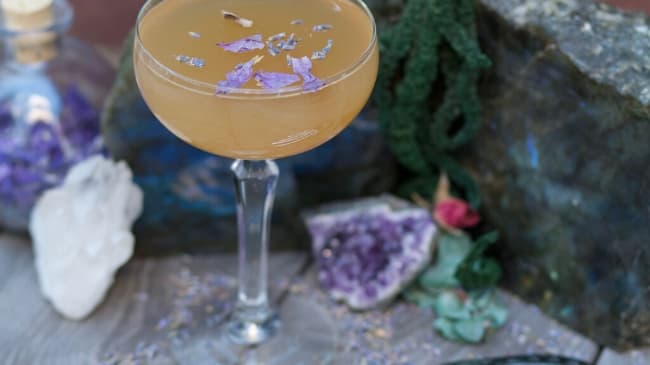
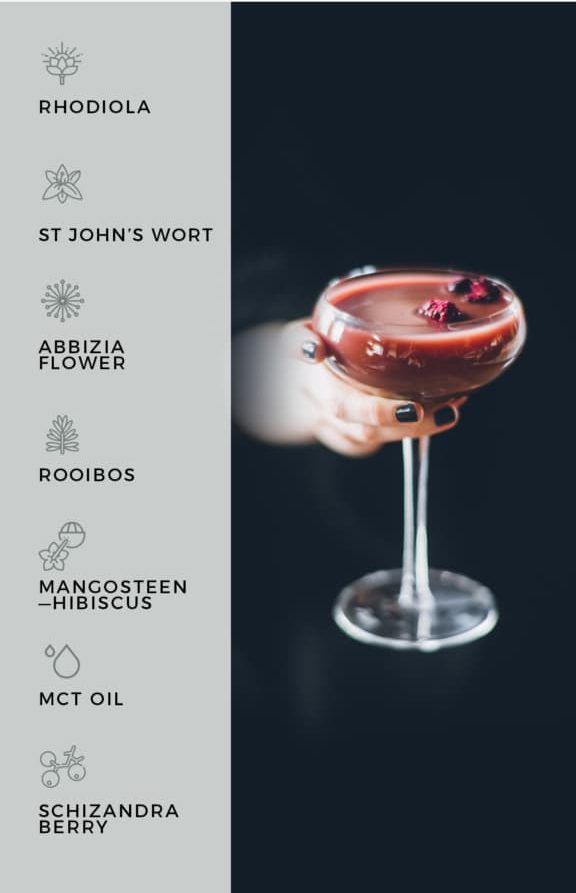
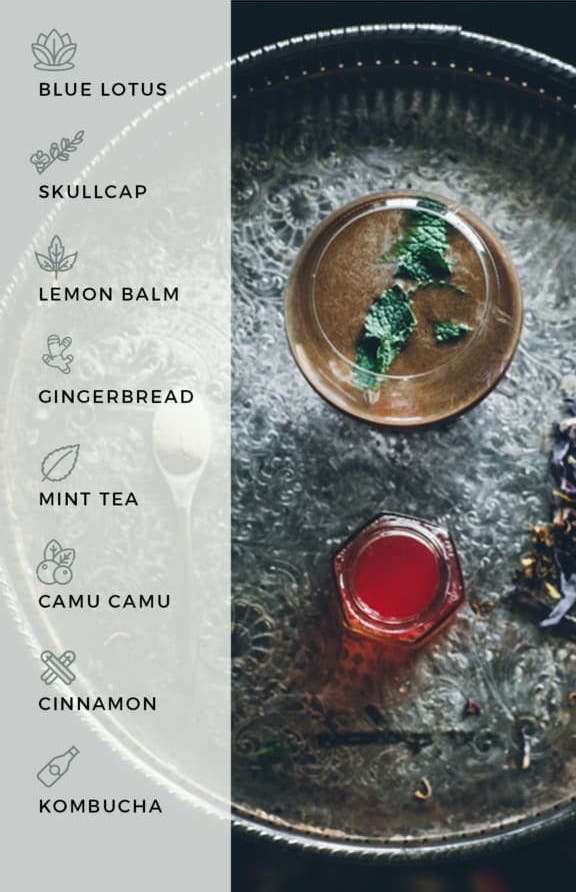
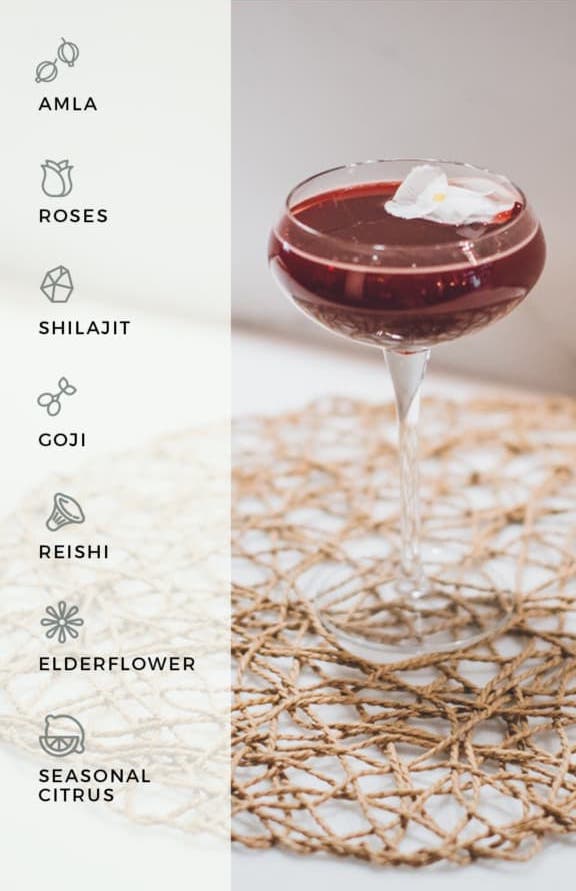
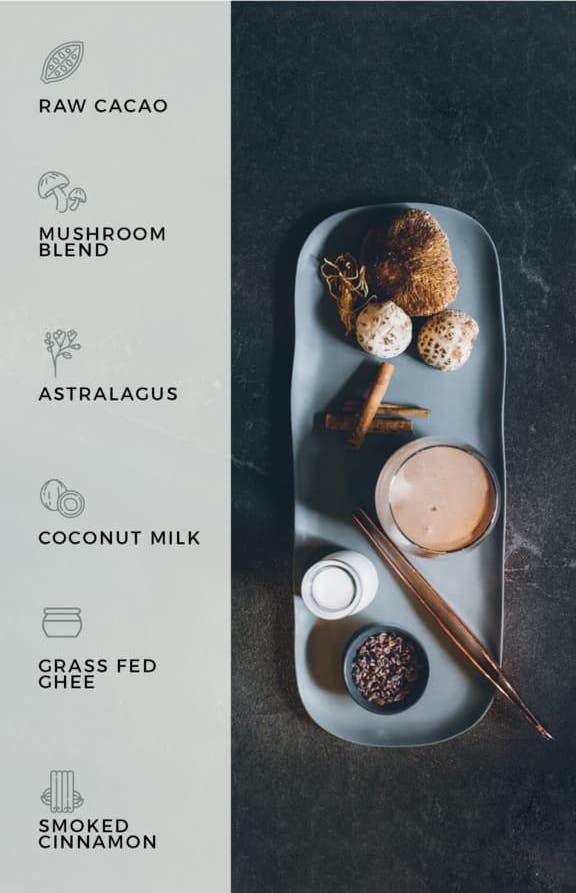
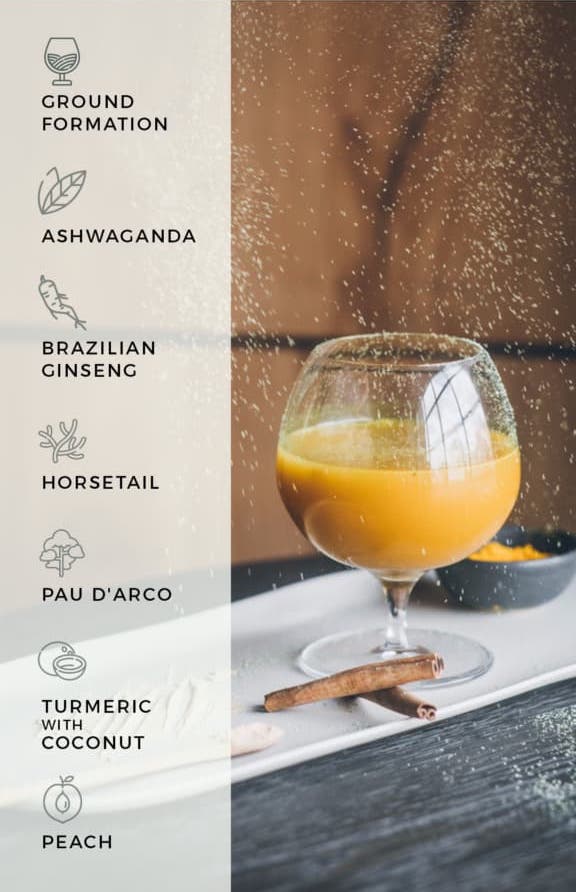
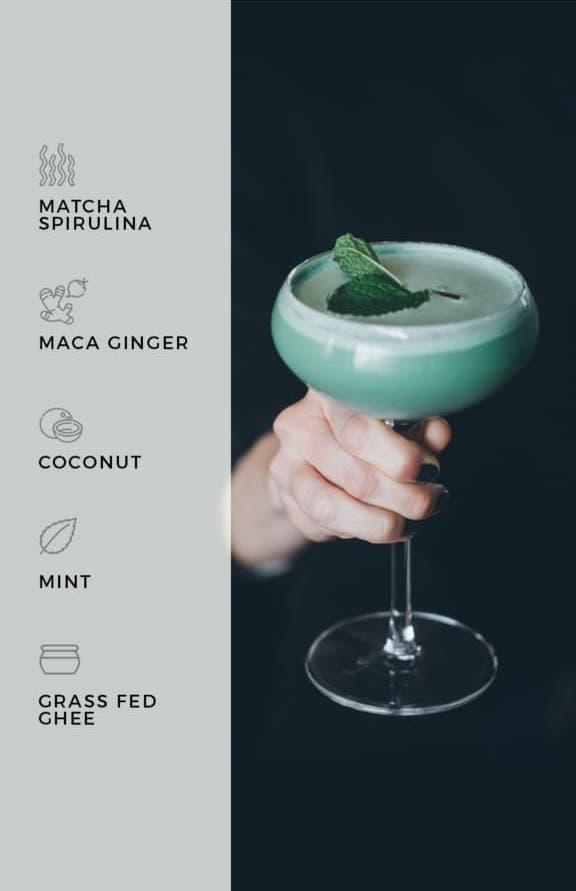




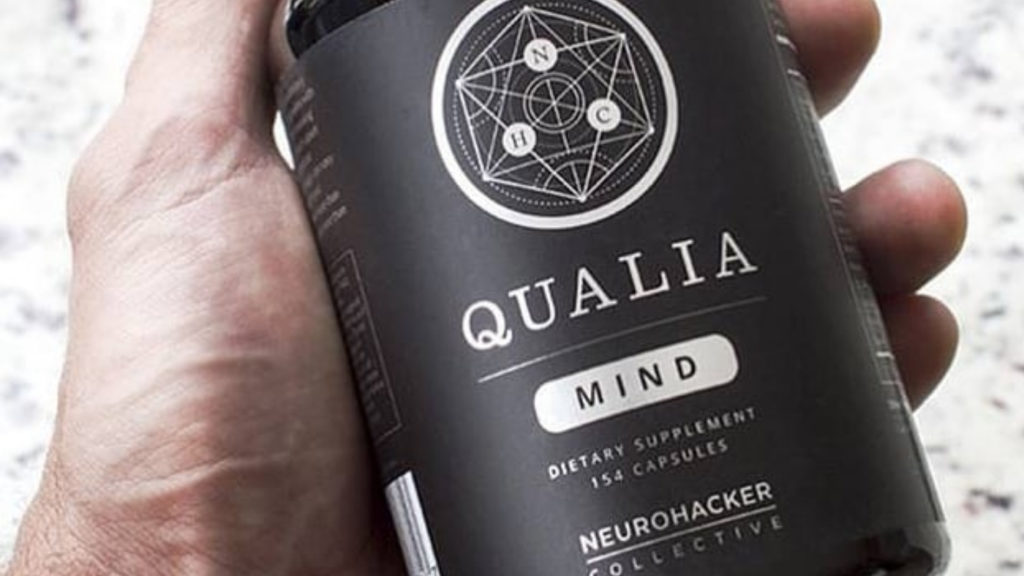
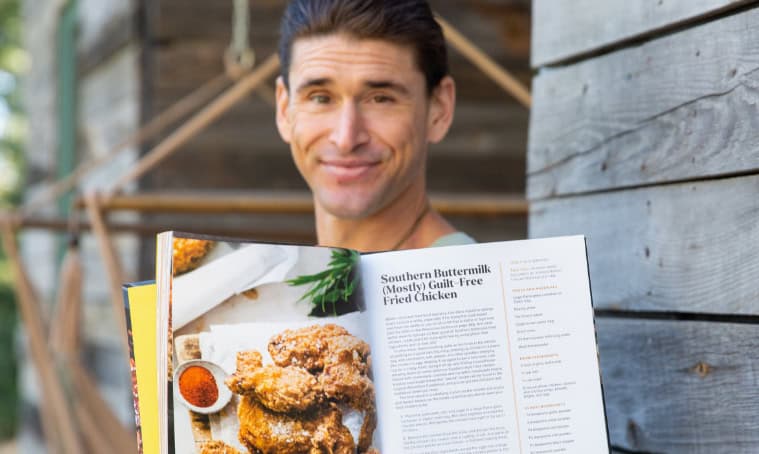






Does anyone know whether this 1,3 Butanediol product: https://www.fishersci.com/shop/products/1-3-butan… would work for cocktails?
I also want to know this. Been looking everywhere on the web and can’t find anything (except for the fisher site)
I haven't tried it.
The immunity elixir sounds amazing! coconut milk, ghee, cinnamon, cocoa…..
epic!
https://menshealthimpact.launchpad.inboxblueprint.net
In the Ground Elixir it has “Ground Formation”. What is that? I don’t see it listed, elsewhere.
Thanks!
Very cool article and at the perfect time. I didn’t see the recipes showing amounts of each ingredient. Did I miss it or do you have to go to NY and the Assemblage?
I read the article twice thinking that I had missed the recipes too. But on further review, could you please provide them?
I thought the same thing but reread the last paragraph… “Without further ado, here is a list of my top six favorite non-alcoholic drinks from The Assemblage, along with a list of ingredients so you can craft your own non-alcoholic drinks at home. Feel free to experiment with our own ratios of ingredients: I’ve found that a pinch of this and a pinch of that and tasting as I go works out quite well. There’s no “perfect” ratio!”